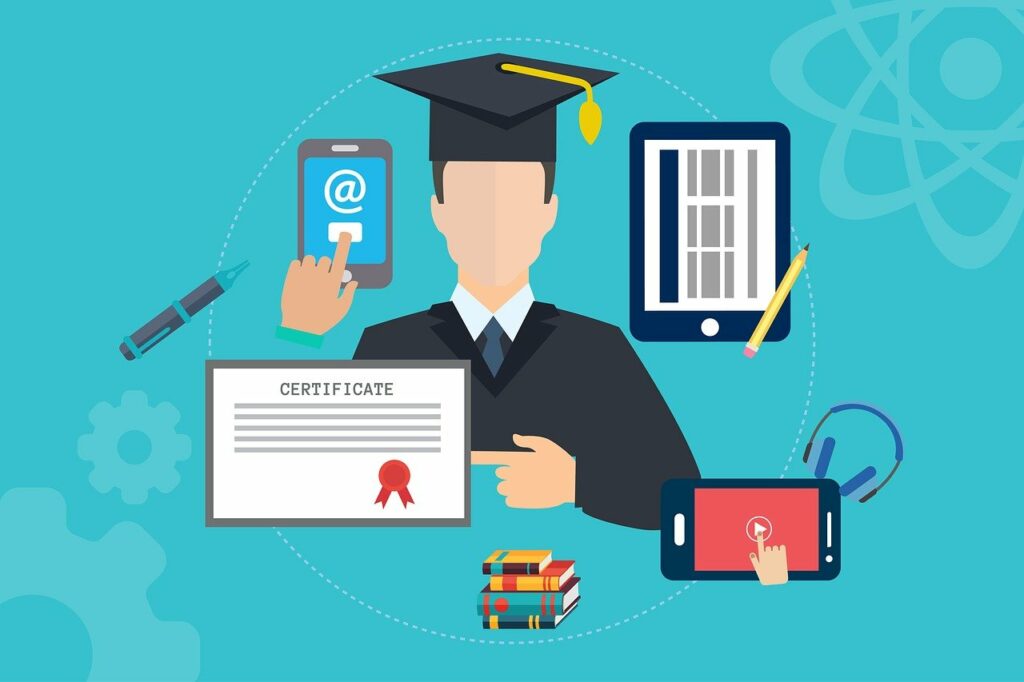In an era where technology intersects with every aspect of our lives, education has not been left behind. Online summer schools, a concept that has gained tremendous popularity in recent years, are at the forefront of this transformation. This surge in interest is not merely due to convenience but also because of the groundbreaking technological innovations that have significantly enhanced the learning experience. These advancements are not only reshaping the way knowledge is delivered and consumed but are also expanding the horizons of what can be achieved within the digital classroom. From AI-powered personal tutors to immersive virtual reality trips, the landscape of online summer schools is evolving at an unprecedented pace, making education more engaging, accessible, and tailored than ever before.

Adaptive Learning Platforms
Adaptive learning platforms leverage data analytics to tailor the learning content to the needs of individual students. These platforms assess a student’s performance in real time and adjust the difficulty level of tasks, the style of content delivery, and the learning path accordingly. This ensures an optimal learning pace for each student, enhancing their understanding and retention of information.
These platforms provide educators with valuable insights into each student’s learning progress, strengths, and areas for improvement. This enables teachers to offer targeted support, making education more effective and efficient. Whether it’s online summer classes for high school students or advanced courses for professionals, adaptive learning platforms are revolutionizing the way we learn. It’s a win-win situation for both students and teachers, leading to improved academic outcomes.
Artificial Intelligence (AI) Tutors
With the advent of AI technology, online summer schools are integrating AI tutors into their curriculum. These virtual tutors are designed to provide personalized learning experiences, adapting to each student’s pace and understanding. This level of customization ensures that students are neither left behind due to slower understanding nor feel unchallenged due to a faster grasp of concepts.
AI tutors are available 24/7, removing the constraints of office hours and providing instant feedback. This means that learning doesn’t have to stop when the class does; students can explore topics deeper or catch up on missed work at their convenience, making education a more flexible and continuous process.
Immersive Virtual Reality (VR) Field Trips
Online summer schools are breaking the tedium of traditional learning by utilizing Virtual Reality to conduct field trips. This technology allows students to explore historical sites, understand complex scientific phenomena, or even travel to outer space, all from the comfort of their homes. The immersive nature of VR makes learning more engaging and memorable.
These virtual excursions not only add an element of fun to education but also help in bridging the gap between theoretical knowledge and real-world applications. By experiencing concepts first-hand, students develop a deeper understanding and appreciation of the subject matter.
Gamification of Learning
The gamification of learning involves incorporating game elements into educational content to make learning more interactive and engaging. Through rewards, leaderboards, and interactive challenges, students are motivated to participate actively and invest more effort into their learning. This method not only makes learning enjoyable but also fosters a healthy competitive spirit among students.
Besides, gamification aids in the development of problem-solving skills, as students learn to apply knowledge in various scenarios to overcome challenges. This approach to learning ensures that concepts are understood deeply and remembered longer.
Cloud-Based Collaboration Tools
Cloud-based collaboration tools have revolutionized the way students and teachers interact. These tools enable real-time collaboration on projects, discussions, and sharing of resources, irrespective of geographical barriers. This fosters a sense of community among students in online summer schools, promoting teamwork and communication skills.
These tools also ensure that learning resources are easily accessible to students anytime, anywhere. This level of accessibility enhances learning flexibility, allowing students to learn at their own pace and on their own time.
Blockchain for Secure Certification
Blockchain technology is being employed by online summer schools to issue secure and verifiable certificates. This innovative approach ensures that the credentials earned by students are tamper-proof and easily verifiable by employers or other educational institutions. This not only adds credibility to online education but also simplifies the process of credential verification.
Blockchain enables a decentralized record-keeping system that protects the privacy of student data while ensuring transparency and authenticity. This represents a significant step forward in addressing the challenges of trust and security in online education. It also gives students the confidence that their hard-earned qualifications are recognized and valued in the job market.

As technology continues to evolve, so will online summer schools. These technological innovations are transforming education for the better, shaping a future where learning is more personalized, engaging, and accessible. With these advancements, online summer schools have become an integral part of modern-day education, providing a world of opportunities for students to learn and grow. The possibilities are endless, and the future of education is undoubtedly bright with these tech innovations leading the way.